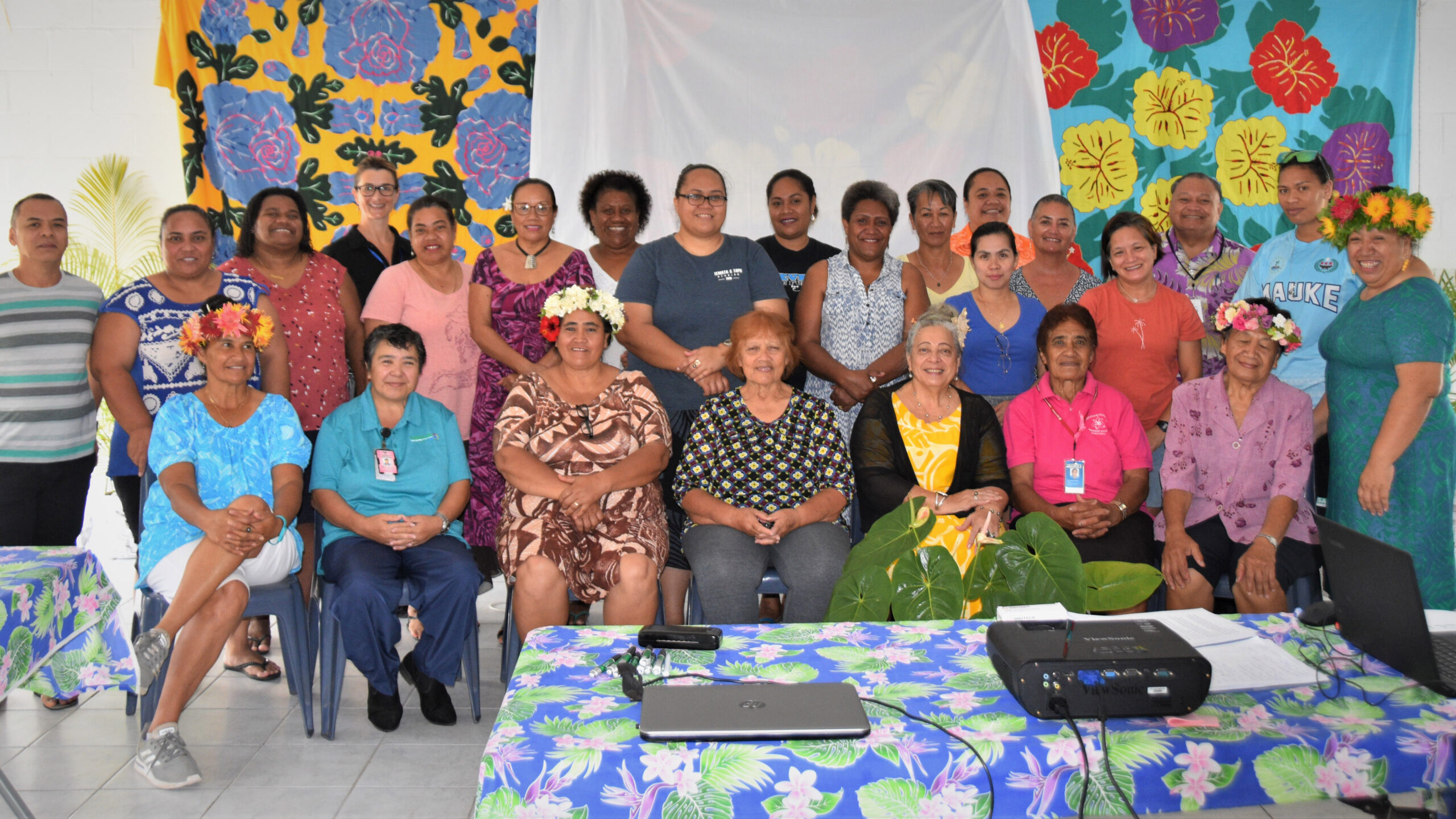Demand for more caregivers
Thursday 18 November 2021 | Written by Melina Etches | Published in Health, National

The participants at Te Vaerua Community Rehabilitation practical and theory workshop for caregivers and family members looking after the elderly and disabled. 21111608
Vero Andrew is a caregiver for her 92-year-old grandmother Tapumanoanoa Andrew (Mama Tapu) – a responsibility she devotedly took on over 20 years ago.
On Tuesday, Vero attended Te Vaerua Community Rehabilitation practical and theory workshop for caregivers and family members looking after the elderly and disabled.
Vero said she attended the course to learn more about the mental health of the elderly in an effort to be prepared.
“At the moment I’m trying to learn more about dementia, if there are things that we can do to prolong or help prevent getting the illness … what the early warning signs are, how it’s diagnosed,” said Vero.
Being the caregiver to her grandmother for so long, Vero is experienced and confident in her daily duties of care. “These days she uses a walker or a tokotoko (walking stick aid) to help with her mobility, but apart from that its good.”

Te Marae Ora senior mental health nurse Anna Paniani explained that “dementia is a general term for a decline in mental ability severe enough to interfere with daily life”.
“Memory loss is an example, and Alzheimer’s is the most common.”
There are different types of dementia and some of the early warning signs are: long term memories may remain intact while short term memories become sketchy, conversations maybe forgotten, repetitive questions and disruptive speech
“It’s hard to face the fact that a loved one could have this disease, but its best to see a doctor for a diagnosis sooner rather than later,” said Paniani.
There is no simple test for Alzheimer’s. “A mental status test sometimes called a ‘mini-cog’ or other screening tests can measure mental skills and short-term memory,” Paniani said.
Alzheimer’s takes a different path in every person, sometimes the symptoms worsen quickly and could lead to severe memory loss and confusion within a few years, for others the changes are gradual and could take up to 20 years, said Paniani.
How caregivers can observe and monitor changes of mental illness, manage challenging behaviours, aggression and violence, and how caregivers can reach out for help, were also presented.
Ruru Taka‘I, a 78-year-old nurse from Kiikii, said one of the biggest problems she sees is the lack of family members or children around to help take care of them (elderly).
In the olden days the kids would naturally take on the responsibility of looking after their parents, she said,
“We looked after our own elderly people. now that’s changed. Some children forget about the old people and just look after themselves, te mea akaroa tena, te aru nei tatou te style a te Nu Tereni – put them in the home.
“Before it was never like that, these days you see some elderly just left on their own, te tangi, te akaroa,” said Taka’i.
Paniani reiterates caregivers are more in demand to look after our elderly because “children and families are busy and have taken on responsibilities”.
The workshop concluded yesterday at the Pokoinu Hall in Nikao.









































